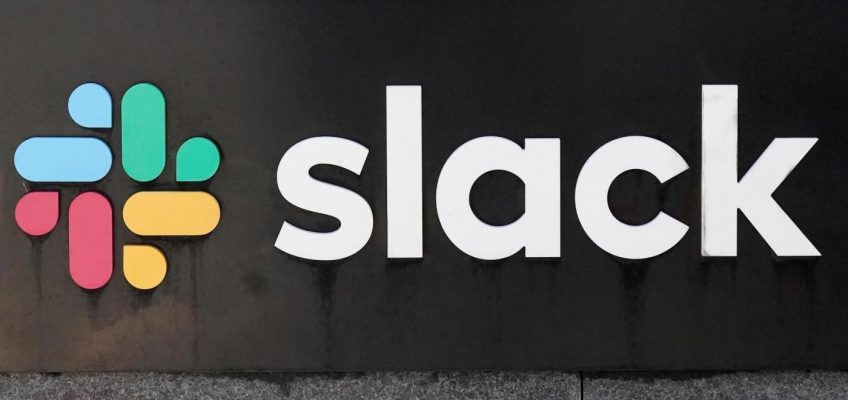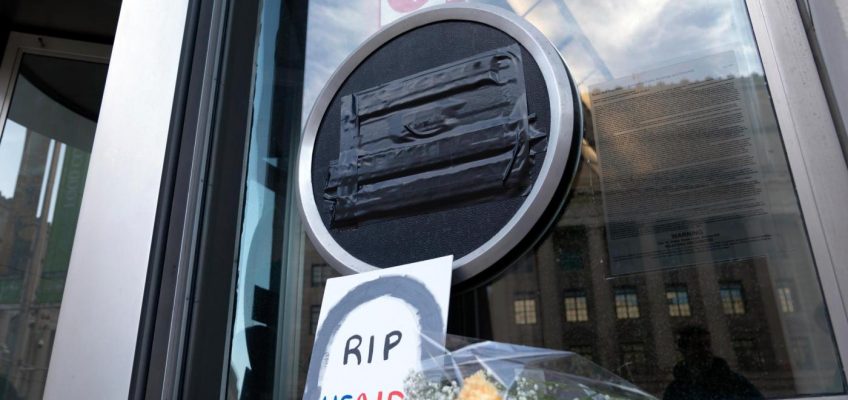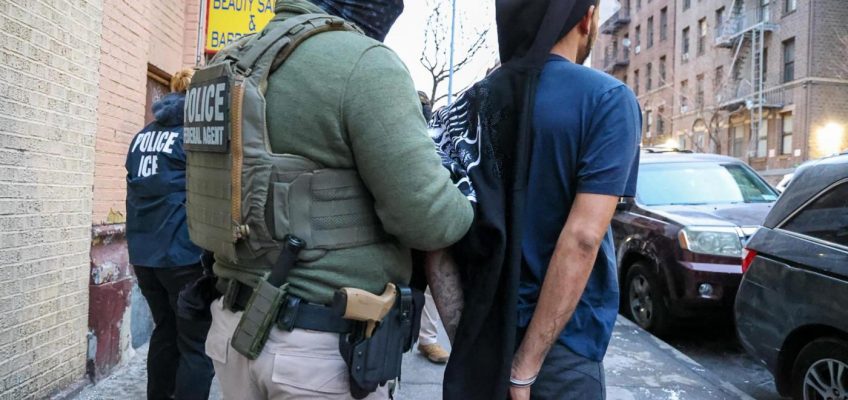By THALIA BEATY, Associated Press
NEW YORK (AP) — Though they know they can never replace all the money lost due to the Trump administration’s freeze on foreign assistance, nonprofits are fundraising to help organizations struggling with the cuts.
Unlock Aid, which advocates for U.S. Agency for International Development reforms, started the Foreign Aid Bridge Fund last week. It will take donations and make grants to groups around the world to try to avert some of the worst impacts of this policy change.
Other groups including Founders Pledge and The Life You Can Save have also launched fundraising campaigns. The Network for Empowered Aid Response, a coalition of civil society organizations from developing countries, has opened a fund, though it’s not accepting donations from individuals. GlobalGiving, a nonprofit that fundraises for grassroots international organizations, was one of the first to launch a campaign to support impacted groups.
As part of a barrage of executive orders in his first days in office, President Donald Trump ordered a 90-day freeze on U.S. foreign assistance to review whether it aligned with his policies. Secretary of State Marco Rubio turned off the funding spigots essentially overnight. At the urging of billionaire advisor Elon Musk, mass layoffs of USAID staff followed.
U.S. Secretary of State Marco Rubio waves as he departs Israel for Saudi Arabia, at Ben Gurion Airport in Tel Aviv, Israel, Monday, Feb. 17, 2025. (Evelyn Hockstein/Pool Photo via AP)
“I don’t think we’re under any illusion that the Foreign Aid Bridge Fund is going to close the entirety of the gap,” said Walter Kerr, co-executive director of the nonprofit Unlock Aid. “But I think in a moment like this, people need to do what they can.”
An independent group of advisors will recommend grants and has already approved several. While any organization can apply, it will prioritize giving to direct service providers and groups that have diversified sources of revenue.
The U.S. spent $68 billion on foreign aid in 2023 and is the largest global funder of humanitarian responses. Programs funding HIV treatment, disease monitoring, child vaccinations, refugee support and malnutrition treatments have halted because of the freeze. Many in the international aid sector believe U.S. funding will never fully return.
“This is not about ending foreign aid, but restructuring assistance to serve U.S. interests and ensure money spent on aid programs actually reaches people in need,” said a State Department spokesperson in an emailed statement.
A group of nonprofits sued over the freeze and a judge Tuesday ordered USAID and the State Department to resume payments by Thursday.
Donors won’t replace government funds
Founders Pledge and The Life You Can Save said just the nonprofits they have previously supported face almost $100 million in funding shortfalls because of the freeze.
Founders Pledge asks business people to promise a portion of the money they make from startups and investments to charities. They research and recommend different nonprofit programs their members can give to. Similarly, The Life You Can Save, founded by the Australian philosopher Peter Singer, recommends charities that work on reducing extreme poverty.
Demonstrators and lawmakers rally against President Donald Trump and his ally Elon Musk as they disrupt the federal government, including dismantling the U.S. Agency for International Development, which administers foreign aid approved by Congress, on Capitol Hill in Washington, Wednesday, Feb. 5, 2025. (AP Photo/J. Scott Applewhite)
David Goldberg, co-founder and CEO of Founders Pledge, hopes to raise tens of millions for their fund. But even “fractions of that money save real lives, prevent people from dying needlessly who otherwise would live,” he said. “So I think everything matters and we should be aiming to have as much public support for this as possible.”
Their rapid response fund has already donated $100,000 and will only give to organizations they’ve already vetted, Goldberg said.
The U.S. funding freeze has cascaded through the international development ecosystem. Many American businesses have also lost funding and thousands of American workers have lost jobs as the vast majority of U.S. foreign assistance actually went through U.S.-based organizations.
“I do deeply hope that philanthropy and individual donors step up in this moment. Philanthropy can never fill the gap that public funding fills,” said Victoria Vrana, CEO of GlobalGiving. “And yet, I do believe that organized philanthropy, corporate philanthropy, foundations can and should do more.”
Appeals to individual donors to step up
When Unlock Aid began planning their bridge fund, they wanted to make it as easy as possible for donors to give. Donors can give through Every.org, an online giving platform that can process payments from credit cards and stocks to cryptocurrencies. The fund is managed by Panorama Global, a philanthropic consulting nonprofit.
Amanda Arch, co-executive director of Unlock Aid, said their emergency fund has received gifts in all of those forms so far.
“When we think about the ability to do really quick and urgent mobilization, it’s just amazing to see the infrastructure and how it’s evolved to meet these types of moments,” she said.
They also reached out to people who had experience mobilizing money held in donor-advised funds (DAF), a type of investing vehicle for funds that are earmarked for nonprofits. Donors immediately get a tax benefit when they put money in a DAF, but there is no deadline when it must be given to a nonprofit.
While major foundations have been listening to grantees and watching closely, few have announced major changes to their funding strategies, even in the face of so much need. People who consult with major foundations said they may be waiting to see what comes next from the administration and to see how ongoing court challenges play out.
The amount of money stored in DAFs has ballooned in recent years from $148 billion in 2019 to $251 billion in 2023, according to the National Philanthropic Trust.
Kerr and Arch spoke with Jennifer Risher, who started a pandemic-era campaign called #HalfMyDAF along with her husband, Lyft CEO David Risher, that asked donors to give away half the money in their DAF accounts. With the Rishers matching some donations, the campaign has tracked $70 million in gifts in four years.
Risher said it was nice to take a tangible step and advise Unlock Aid.
“I love seeing them take action and setting a goal,” she said. “That’s exciting to see.”
Associated Press coverage of philanthropy and nonprofits receives support through the AP’s collaboration with The Conversation US, with funding from Lilly Endowment Inc. The AP is solely responsible for this content. For all of AP’s philanthropy coverage, visit https://apnews.com/hub/philanthropy.




